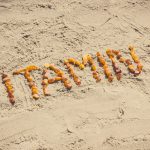COVID Related Stress is New Normal, According to APA
Node Smith, ND
Nearly half of parents of children under age 18 say their stress levels related to the coronavirus pandemic are high, with managing their kids’ online learning a significant source of stress for many, according to a new survey by the American Psychological Association.
Mental health toll on parents is growing, warns APA
As the global pandemic continues and parents juggle child care, work and schooling demands, the mental health toll on parents is growing, warns APA. At the same time, the proportion of Americans saying that the economy or work is a significant source of stress in their life has risen significantly.
“For many parents, it can feel overwhelming to face competing demands at home and work along with possible financial challenges during this unprecedented crisis,” said Arthur C. Evans Jr., PhD, APA’s chief executive officer. “Children are keen observers and often notice and react to stress or anxiety in their parents, caregivers, peers and community. Parents should prioritize their self-care and try their best to model healthy ways of coping with stress and anxiety.”
Stress in America 2020 Stress in the Time of Coronavirus, Volume 1, was conducted by The Harris Poll from April 24 to May 4, 2020, and surveyed online 3,013 adults age 18+ who reside in the United States. This is the first of at least three monthly surveys APA and The Harris Poll plan to gauge the impact of the pandemic on stress.
46% of parents say their average stress level related to the coronavirus pandemic is high
The survey found that 46% of parents say their average stress level related to the coronavirus pandemic is high (between 8 and 10 on a 10-point scale where 1 means “little or no stress” and 10 means “a great deal of stress”). Only 28% of adults who don’t have children under the age of 18 report similar levels of stress.
With schools closed and many parents working from home while coordinating their children’s schedules, 71% of parents say managing distance/online learning for their children is a significant source of stress.
Parents are more likely than those without children to say basic needs are a significant source of stress
Parents are more likely than those without children to say basic needs — such as access to food and housing — are a significant source of stress (70% compared with 44%). Other significant stressors for parents include access to health care services (66% vs. 44%) and missing major milestones, such as weddings and graduation ceremonies (63% vs. 43%).
As unemployment numbers have reached record highs, the economy and work have increased as stressors for Americans. The current survey found that the economy is a significant source of stress for 70% of adults, compared with 46% in APA’s 2019 Stress in America poll. Current stress levels are similar to the levels seen in the 2008 Stress in America poll during the Great Recession. Similarly, 7 in 10 employed adults say work is a significant source of stress in their lives, compared with 64% in the 2019 survey.
Pandemic-related stress is having a disproportionate impact on communities of color
Pandemic-related stress is having a disproportionate impact on communities of color. People of color are more likely than white adults to report significant stressors in their life as a result of the coronavirus pandemic, namely getting coronavirus (71% vs. 59%, respectively), basic needs (61% vs. 47%), and access to health care services (59% vs. 46%). Slightly more than 2 in 5 Hispanic adults (41%) say their average level of stress related to the coronavirus pandemic during the past month was between 8 and 10. Hispanic adults are also most likely to say they constantly or often feel stress as a result of the pandemic (37%), as compared with white (32%), black (32%), Native American (31%), and Asian (28%) adults.
“The mental health ramifications of the coronavirus pandemic are immense and growing,” Evans warned. “We need to prepare for the long-term implications of the collective trauma facing the population. On an individual level, this means looking out for one another, staying connected, keeping active and seeking help when necessary.”
APA also offers resources for the public on mental health during the time of COVID-19 (https://www.apa.org/topics/covid-19), including resources specially for parents and on racial equity and health disparities.

Node Smith, ND, is a naturopathic physician in Humboldt, Saskatchewan and associate editor and continuing education director for NDNR. His mission is serving relationships that support the process of transformation, and that ultimately lead to healthier people, businesses and communities. His primary therapeutic tools include counselling, homeopathy, diet and the use of cold water combined with exercise. Node considers health to be a reflection of the relationships a person or a business has with themselves, with God and with those around them. In order to cure disease and to heal, these relationships must be specifically considered. Node has worked intimately with many groups and organizations within the naturopathic profession, and helped found the non-profit, Association for Naturopathic Revitalization (ANR), which works to promote and facilitate experiential education in vitalism.










